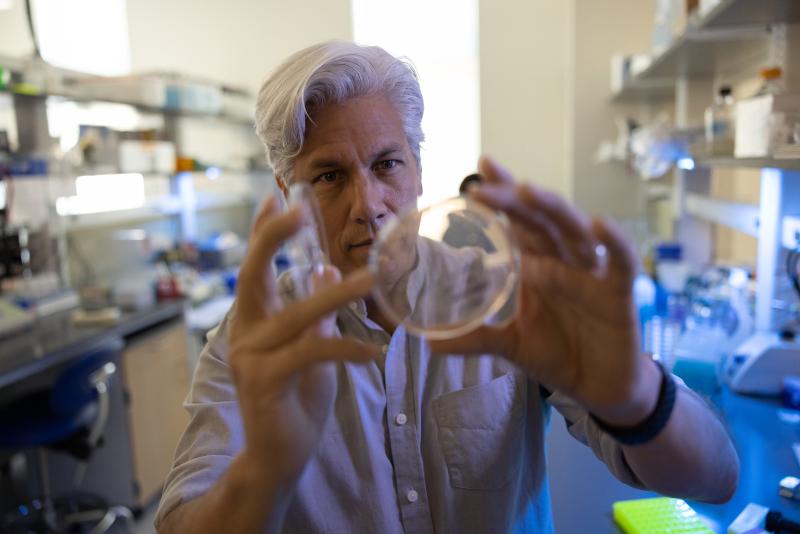
Raphael H. Valdivia, PhD, will be the new vice dean for basic science for the Duke University School of Medicine. Dr. Valdivia will begin his service as vice dean on July 1, 2014, when current Vice Dean for Basic Science Sally Kornbluth, PhD, becomes provost.
As vice dean for basic science, Dr. Valdivia will serve as a liaison between the Dean’s office and the basic science community. His duties will include oversight of the biomedical graduate programs in the School of Medicine, the postdoc office, animal care and compliance programs, School of Medicine core facilities, and research lab space utilization.
Dr. Valdivia is an associate professor in the Department of Molecular Genetics and Microbiology. He also serves as director of graduate studies for the department and as director of the Center for the Genomics of Microbial Systems. Both of those leadership roles will transition to new directors this summer.
Dr. Valdivia received his PhD from Stanford University in 1997 and completed a Damon Runyon Cancer Research Fellowship at the University of California, Berkeley before joining the faculty of Duke as an assistant professor in 2002. In his current research, Dr. Valdivia focuses on understanding the molecular basis for the pathogenesis of Chlamydia trachomatis, a leading sexually transmitted infection and the causative agent of blinding trachoma. Dr. Valdivia is currently funded by multiple NIH grants and a private foundation grant. He is an author of more than 50 publications and book chapters.
In 2004, Dr. Valdivia earned recognition as a Pew Scholar in the Biomedical Sciences, and in 2007 was the recipient of the Merck Irving S. Sigal Award from the American Society for Microbiology. In 2008, Dr. Valdivia was selected as a Burroughs Wellcome Fund Investigator in the Pathogenesis of Infectious Diseases. Dr. Valdivia serves as a section editor for the journal PLoS Pathogens, associate editor for the journals Pathogens and Disease and the Journal of Bacteriology, and is a permanent member of the NIH Study Section on Bacterial Pathogenesis. In 2012, he was elected as a fellow of the American Association for the Advancement of Science.